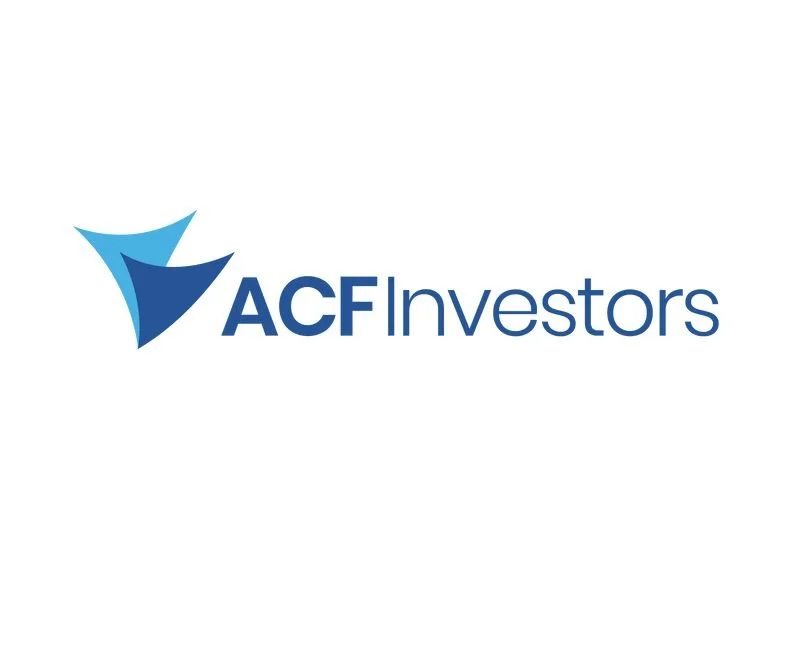How to pitch your IP without giving away the secret sauce. PART 2 OF 3: The Patent Paradox and the Trade Secret Alternative
Series Preface
This article is part of a three-part series on how founders can pitch intellectual property convincingly without revealing their “secret sauce”, written by IT technologist and angel investor Dr Anthony Harris.
Author Bio
Anthony has been a member of Cambridge Angels since 2019. Before that he was a member of Cambridge Capital Group (CCG) and continues as a member of the Oxford Capital co-investor circle. He has been angel investing for over twenty years, has invested in more than fifty companies, and is somewhat unusual in that he makes a living out of angel investing as well as investing in the capital markets (he was an early-stage investor in Amazon, PayPal, Google, Microsoft, PayPal, Motorola, Apple, Palantir and many other tech success stories). According to him he does this by ‘investing in things I know with a few fun investments along the way’ (Flit, and Oxitec being just two examples). Anthony originally studied computing at Oxford Brookes (when it was Oxford Polytechnic) and then went on to work in R&D and development in the computing industry (mainframes and microcomputers), including some time working in Silicon Valley. In 1989 he founded Software 2000, an OEM software house which he used to suggest was ‘the most successful company you’ve never heard of’. The company’s royalty and licensing business transformed inkjet and connected laser printer technologies world-wide, won four Queen’s awards for export, numerous other industry awards, and grew to $150m valuation with offices in three continents. Anthony exited in 2007 to a management buy-out and went on to study for an MA at Oxford, an MA(Res) at Reading and his PhD at Cambridge (Sidney Sussex). He has been mentoring on the ‘Accelerate’ programme at the Judge Business School since 2014 and continues to help start-ups with advice on intellectual property and business finance. He has just finished a research fellowship at Clare Hall (Cambridge) and is now a fellow and director of studies for computer science at Emmanuel College (Cambridge). Anthony sits on the board of Cambridge Angels as our treasurer and is on the boards of Flit and ScaleXP, two Cambridge Angels portfolio companies.
In Part 1 of this series, Tony explored the “pitching conundrum” founders face: how to clearly explain what their product does and why it is defensible, while navigating opaque vetting processes and pitching to sophisticated investors without giving away the secret sauce.
You can read Part 1 here: www.cambridgeangels.com/news-ecosystem/how-to-pitch-your-ip-without-giving-away-the-secret-sauce-some-part1
The Patent Paradox
Many founders default to patents as the answer, because patents are a familiar choice and having a patent, or ‘patent applied for’, feels like proper IP protection. Patents carry prestige and are often one of the first things that investors ask about. They also have recognisable value and can often be capitalised to add substance to a young company’s balance sheet. Many investors are unwilling to enter into confidential disclosure agreements (CDAs/NDAs) so having a patent gives a measure of strong IP protection when pitching to an unknown audience. However, there is alternative approach to filing patents (trade secrets) which, if executed well, can make a company more valuable to investors, not less. Before discussing trade secrets it is important to understand the pro’s and con’s associated with patents.
The uncomfortable truth about patents is that at some point along the way they require inventors to tell the world exactly how their technology works. Filing a patent means eventually disclosing your invention in sufficient detail that someone ‘skilled in the art’ (i.e. an expert in your field) could theoretically reproduce it. That full specification becomes publicly available through publication, normally 12-18 months after filing, regardless of whether your patent is ultimately granted or not. There is really no alternative to ‘full disclosure’ of the invention in the patent application because a common defence in patent litigation is ‘non-reproducibility’. In other words, if somebody can demonstrate that your invention cannot be reproduced using the details in your published patent then they can apply for it to be struck out. It is a mark of an inexperienced founder/inventor to suggest that they have only disclosed ‘some’ of their invention. Such a comment would normally make me very unlikely to invest in the venture.
For a software company, this publication/disclosure rule is particularly problematic. Software patents are difficult enough to apply for and get granted but the patent must describe your algorithms, data structures, and specific implementation choices in enough detail so that somebody else can do what you do. Obviously, these are the exact details that constitute your competitive advantage and, once this information is published, then your competitors can study it, reproduce it, potentially design around it, and even create variations themselves that replicate your tech, but maybe from a different angle. It’s a risk whichever way you look at it.
Patents also come with a significant price tag. Filing, prosecution, and maintenance of a single patent can easily cost thousands in the UK, and substantially more in the US, Europe, and beyond. That's before considering the time overhead: managing the prosecution process, responding to examiner rejections, and maintaining the patent portfolio over many years if you want global protection. When the patent eventually expires your IP is free for anyone to use so that, for many technology companies, this feels less like protection and more like an expiration date on your competitive advantage.
The Trade Secret Alternative
Trade secrets operate on fundamentally different principles to patents. They represent confidential business information (including your algorithms, methods, and data), that provide your competitive advantage and which remain undisclosed outside of your company. There's no patent office, no formal registration, no expiration date. As long as you maintain confidentiality and can demonstrate that you took reasonable steps to protect it, your trade secret remains protected indefinitely. Internally you need to restrict access to your trade secrets and to document how you do that. In my own company we developed proprietary imaging/halftoning technology, a novel imaging pipeline (based on display-list technology), and a colour management system. These were well ahead of other technologies in the market and so we wanted to keep them as our ‘trade secrets’ rather than publishing what we were doing. This strategy worked well for us because once competitors had worked out what we were doing, we had already innovated beyond our previous techniques and shifted the goalposts.
Probably one of the best known examples of a trade secret is the formula for Coca-Cola. Despite it being one of the world's most valuable trade secrets for over a century, Coca-Cola have never patented it. They have kept it confidential, protected it through NDAs, and physically restricted access to it. That strategy has served them better than any patent would have because the moment you patent a formula; the world knows the formula exists and eventually gets to use it. By keeping it secret, Coca-Cola have preserved their competitive advantage permanently. A similar example is the Aero chocolate bar where the chocolate recipe is not documented but you can find an ancillary patent which explains how to generate bubbles in chocolate by using nitrogen in a reduced pressure environment. So, in this case, one aspect of the technique is protected through a patent but the chocolate recipe remains a ‘trade secret’.
For technology startups the flexibility offered by a trade secret is extraordinary. You are not forced to choose between disclosure (patenting) and no protection (keeping quiet) so you can actually demonstrate robust IP protection to investors without surrendering your technological secrets. What is not to like!
In Part 3 of this series, Anthony explains how founders can prove IP value, defensibility, and exit potential without revealing the details that actually matter.
How to pitch your IP without giving away the secret sauce. PART 1 OF 3: The Pitching Conundrum – Getting Past the First Two Hurdles
Series Preface
This article is part of a three-part series on how founders can pitch intellectual property convincingly without revealing their “secret sauce”, written by IT technologist and angel investor Dr Anthony Harris. Across the series, Anthony explores the realities founders face when pitching to investors, the risks and rewards of patents versus trade secrets, and how to demonstrate IP value without over-disclosure.
Author Bio
Anthony has been a member of Cambridge Angels since 2019. Before that he was a member of Cambridge Capital Group (CCG) and continues as a member of the Oxford Capital co-investor circle. He has been angel investing for over twenty years, has invested in more than fifty companies, and is somewhat unusual in that he makes a living out of angel investing as well as investing in the capital markets (he was an early-stage investor in Amazon, PayPal, Google, Microsoft, PayPal, Motorola, Apple, Palantir and many other tech success stories). According to him he does this by ‘investing in things I know with a few fun investments along the way’ (Flit, and Oxitec being just two examples). Anthony originally studied computing at Oxford Brookes (when it was Oxford Polytechnic) and then went on to work in R&D and development in the computing industry (mainframes and microcomputers), including some time working in Silicon Valley. In 1989 he founded Software 2000, an OEM software house which he used to suggest was ‘the most successful company you’ve never heard of’. The company’s royalty and licensing business transformed inkjet and connected laser printer technologies world-wide, won four Queen’s awards for export, numerous other industry awards, and grew to $150m valuation with offices in three continents. Anthony exited in 2007 to a management buy-out and went on to study for an MA at Oxford, an MA(Res) at Reading and his PhD at Cambridge (Sidney Sussex). He has been mentoring on the ‘Accelerate’ programme at the Judge Business School since 2014 and continues to help start-ups with advice on intellectual property and business finance. He has just finished a research fellowship at Clare Hall (Cambridge) and is now a fellow and director of studies for computer science at Emmanuel College (Cambridge). Anthony sits on the board of Cambridge Angels as our treasurer and is on the boards of Flit and ScaleXP, two Cambridge Angels portfolio companies.
The Pitching Conundrum
The First Hurdle (Vetting) - Getting to the Pitch
It is unusual for early-stage founders to be able to talk directly to a business angel or VC analyst. Normally there is a front-end vetting process that they must go through where their pitch is sifted, by a person or persons unknown, from the hundreds or (sometimes) thousands sent to angel groups or VCs each year. Because the vetting process is, by its very nature, opaque founders don’t really know who will see their pitch deck first. As a result, they tend to be overly reticent about their product and its ‘secret sauce’. Hence, many pitch decks sent in for vetting don’t end up answering the crucial question, ‘What is it and what makes it unique?’ Founders fear putting this in a first-approach pitch deck because they don’t know where it will end up or who will see it but this means many pitch decks never get past this first hurdle because the front-end vetting team can’t work out what it does. The logic here is that if the founders can’t explain what their product does in simple terms, then they will be laughed at when/if they get in front of an angel group or VC investment panel and the vetting team will be left with egg on their faces if it did get through their process. Hence, to grab attention and to make a deck stand out it is extremely important to explain succinctly what the product does and why what it does is important (and hopefully unique). This means also explaining that there is a high cost of entry to competitors entering the market and doing the same thing quicker and cheaper! High costs of entry can be demonstrated through ‘patent(s) applied for’, ‘patent(s) granted’, ‘trade-secrets’, or ‘it’s demonstrably difficult’ (e.g. a unique hardware design that has taken years to develop, Quantum, or AGI). It’s worth-while having a couple of slides in the initial deck which state ‘here exactly is what it is’ and ‘here’s why it’s difficult for somebody else to do exactly what we do’. Generally, pitches that deal with this up-front are the ones that pass the vetting process and get moved on to pitch to the investors. ‘Many are called but few are chosen’ so it is important to get things right at this stage.
The Second Hurdle (The Pitch)
When founders pass the vetting process and do eventually get to pitch directly to investors, they naturally want to demonstrate the value of their product and its intellectual property. This means further justifying the valuation, demonstrating its defensibility in concrete terms, and validating the high cost of entry for potential competitors. Yet they are also acutely aware that the people they are pitching to will understand their market in some depth, have valuable networks directly in their area of expertise, and might not be the investors that they ultimately end up with. Hence the ‘pitching conundrum’. How much do they reveal without giving away the farm and how do they prove they have got something genuinely defensible without handing potential competitors a complete instruction manual of how to do what they are doing (or intend to do)?
Many founders default to patents as the answer, because patents are a familiar choice and having a patent, or ‘patent applied for’, feels like proper IP protection. But is this always the right choice?
In Part 2 of this series, Anthony explores why patents are often the default response to this conundrum — and why that default may be more dangerous than founders realise.
The Perse School hosts Sherry Coutu CBE for AI in education networking event
We were thrilled to host Sherry Coutu CBE – serial entrepreneur, angel investor and Co-Chair of AI in Education (AiEd Certified) – at The Perse School this week for our AI in Education networking event.
In conversation with David Cleevely: Serendipity: It Doesn't Happen by Accident
In our latest In Conversation Academy session we were joined by David Cleevely, a telecoms pioneer, deep tech investor, and one of the driving forces behind the Cambridge tech cluster, as he shares insights from his new book, Serendipity: It Doesn't Happen by Accident.
ACF Investors: Why raising EIS limits is a budget imperative
The Budget offers a golden opportunity for the UK government to reaffirm its commitment to building a world-class technology ecosystem. Successive administrations since the global financial crisis of 2008 have recognised the importance of high-growth companies in reviving the economy. The logic is sound: build an environment where startups can grow into global leaders like the fintech pioneers Monzo, Wise, and Revolut, and Britain will reap the economic benefits.
T-Therapeutics announces Series A extension to $91 million to advance first-in-class bispecifics towards the clinic
$32 million new equity injection adds to previously announced $59 million
New investors Tencent and BGF joined by all existing major shareholders
Funds will advance pipeline of novel TCR-CD3 bispecifics in cancer and autoimmune disease
Paying it forward: The trailblazing Cambridge entrepreneurs engineering the next wave of global innovators
Cambridge’s global reputation for science and technology isn’t just built on invention. Innovation is actively engineered and fine-tuned here in the city - and nowhere is this more evident than on the Impulse programme, the University of Cambridge’s flagship entrepreneurship initiative.
Cambridge Angels CEO has earned her wings and then some!
Emmi Nicholl has just been promoted to CEO at Cambridge Angels. Tony Quested posed some key questions.
Awards adds influence to Cambridge's bid for global greatness
Big-name companies are piling in as sponsors of the annual Business Weekly Awards to help a united Cambridge gain more traction on the global stage. Innovate Cambridge and Cambridge Innovation Capital are using the Awards to highlight their open gateway promotion to showcase light blue research to the wider world.
Birketts polishes gem of a deal between Sapphire France and US group FlexXray
Law firm Birketts has advised the shareholders of Sapphire France Holdings Limited on the sale of the main business and its subsidiary companies across both the UK and France to FlexXray in Arlington, Texas – a leading provider of food safety and inspection services.
VolkerFitzpatrick to deliver new development phase at St John’s Innovation Park
St John’s College has appointed VolkerFitzpatrick to deliver the next phase of expansion at St John’s Innovation Park in Cambridge.
Cambridge Innovation Capital pledges £100m+ for University spin-outs
Cambridge Innovation Capital (CIC) is pledging mega-money and mentorship to take more spin-outs out of the university and put them on the road to global success.
Amadeus Capital Partners co-founder Anne Glover awarded Damehood
Anne Glover, co-founder with Cambridge's Hermann Hauser of Amadeus Capital Partners, has been formally recognised for her outstanding contributions to science, engineering, and innovation in the UK and been awarded a Damehood.
50 Years of AI Evolution with Steve Young: From Speech Recognition to AGI
Unlock five decades of artificial-intelligence evolution insight in one conversation.
Recode Ventures' Vishal Gulati Elected Fellow Of Academy Of Medical Sciences For Contributions To Translational Medicine
Healthcare Venture Capitalist Vishal Gulati Inducted Into The Academy Of Medical Sciences In Recognition Of His Role In Translational Medicine.
Meet the money! Bio-centric Ventures Tour debuts at Cambridge Wide Open Week
A two-day Ventures Tour featuring a range of portfolio pitch sessions hosted by some of Cambridge’s most prominent venture capital firms, venture builders, incubators, accelerators and business angels, has been introduced to the Cambridge Wide Open Week life science showcase in June.
How to prepare for your exit: lessons from veteran advisor and investor, James Viggers.
A longstanding member of Cambridge Angels, James studied engineering at Trinity College, Cambridge before spending his career in investment banking in London & New York. Now an angel investor and non-executive director with his professional advisory days behind him, he is one of our resident experts on exits and exit planning.
A longstanding member of Cambridge Angels, James studied engineering at Trinity College, Cambridge before spending his career in investment banking in London & New York. Now an angel investor and non-executive director with his professional advisory days behind him, he is one of our resident experts on exits and exit planning.
So, James – you’ve worked on exits both as an M&A advisor and as part of a selling management team. What’s the biggest misconception founders have about exits?
There is a cliché about building companies being a marathon not a sprint. The misconception is that the exit is the finish line.
A buyer isn’t buying a moment in time – they’re paying for your company’s future. They need you to deliver not just your tech, but your team, your customers, your revenues, your trajectory. And this takes time. If earnouts are involved or if your exit path is via IPO then that delivery phase might stretch out over three years or more. Sadly, collapsing over the finish line isn’t really an option
When’s the right time to sell?
It very much depends on the company. The thoughtful, long-form answer is to ask: when might a transaction best help us achieve our mission? When would joining a bigger player genuinely help us go faster or further than we could alone? This might be never – you might be the crack team that’s going to scale your company to global domination. However, it’s often earlier than people think. You might be developing pure IP and the aim might be to exit as soon as possible. In either case, my opinion is that the best exits aren’t cash-outs, they’re springboards.
The only wrong answer on timing is to wait until you absolutely have to exit. If you are out of energy, out of cash or have no other options then you are very unlikely to get a good outcome.
If your drive to exit is financially motivated that’s fine. But you should be prepared to have grown up conversations around the management table regarding personal financial goals – a surprising number of people have a target of “more” which can be unhelpful when discussing timing!
Incidentally, trying to time a market peak is a mug’s game. Many perfectly-timed exits are just good luck. It’s better to focus on being quietly but consistently exit-ready. That way, if someone makes you an offer out of the blue – and that does happen, especially in hot sectors – you’re in a position to move. With exits, you need to be prepared before you can be opportunistic.
What actually increases valuation in an exit?
You will already be doing your best to make a success of your company. So the next answer is: preparation!
Ask yourself now – today – who your actual buyers are. Not vague categories like “big pharma” or “US fintechs”. Real names. Do they actually buy companies like yours? For decent prices? Can they afford you? Why would specifically-they buy specifically-you? Think all this through – it might impact your views on realistic exit timing and provide valuable input into your medium term strategy.
Do you know anyone at the buyers? Can you find a legitimate business reason to start building a good relationship? Can you find an excuse to have a cup of coffee at a conference or similar? You can’t start that work too early.
Then, get your house in order. I have a wish list from my days as an investment banker of “things I wish our clients had started thinking about six months before calling us”. That rumbling succession issue? That niggling worry that your IP assignment might not quite be entirely right? Non-trivial, but solvable in advance. If they come to a head in the middle of a sale process you are in real trouble. And they will come up – buyside due diligence can be pretty punishing! You will also need to give warranties around these issues on sale, and these will be much more onerous that you might be used to from previous capital raisings. It’s much easier to start early here.
A note on competitive tension. You need more than one potential buyer at the table. If you’re only talking to one firm, your negotiating leverage is basically little more than asking nicely. It can work, but you are unlikely to get the best deal.
What tends to go wrong?
This is a longer conversation! Some things are fairly obvious – leaving it too late, having only one buyer, failing to prepare. Some issues can come out of left field – a single large customer blocks a deal, it turns out a key employee never actually wanted to sell in the first place, an investor whose expectations haven’t been properly managed suddenly cuts up rough on signing day.
You shouldn’t assume that even a benign exit process will be quick or straightforward. It probably won’t be. There’s a lot of diligence and negotiation. It can help to have proper advisors – good ones are worth paying up for. Plus, it’s easy to forget to keep running the company during all this. Ironically, that’s when momentum matters most.
What should founders be doing now – even if they’re years away from selling?
The “zero-th” step is to make sure you understand what you and your team actually want from an exit. Have you discussed this recently? Are you all aligned? Are everyone’s aspirations realistic?
Then start by refreshing your exit plan and listing your likely acquirers. Build these relationships. This is partly about looking good in front of your potential buyers but also about doing your diligence on them – you will be looking for a home for your team and cultural fit can be key.
Keep your house in order: legal, tax, HR, IP. Put proper KPIs and systems in place, then hit your targets. Make sure your wider team have medium term incentive plans. Think about gently moving your company culture beyond its start-up phase – would you actually fit as part of a larger organisation?
And don’t forget to talk to your investors. Make sure expectations are aligned – not just on timelines, but on valuation and the kind of deal you’re aiming for. Misalignment here can derail everything later.
How do things typically play out after the deal closes?
The transaction is just one step. The integration is where real success (or failure) often happens.
It can be a bumpy ride. Being acquired is deeply unsettling for staff. You need a clear plan for communication, retention, and integration. If there are redundancies, they need to be handled decisively and respectfully. Again it’s slightly different for pure IP vs revenue generating businesses, but you should think about branding, customer messaging, supplier relationships. Especially if there’s an earnout involved, you want everything post-deal to go smoothly.
Any final words of advice?
Remember: it’s not a wedding, it’s a marriage.
Exits are stressful and exhausting. There will be late nights, missed forecasts, emotional flare-ups, honest mistakes and at least one moment when someone threatens to walk away. The goal isn’t just a signed SPA, it’s a successful handover and a strong future.
New power bloc merges minds to drive Cambridge S & T upsurge
Innovate Cambridge has assembled a group of world-class tech and science leaders to steer a novel innovation and growth blueprint the length and breadth of the planet.
Murray Edwards acts as just 4 per cent of Cambridge spin-outs are all-female led
Cambridge University is famed worldwide for the entrepreneurship of its academics and for the spin-outs from their brilliant research. There is just one problem – women are vastly underrepresented, writes Dorothy Byrne, President of Murray Edwards College, University of Cambridge. Only four per cent of teams in Cambridge spin-outs are all female while 67 per cent are all male.
Frontier Founder & President David Braben inducted to the UKIE Hall of Fame
We are delighted to share that on Tuesday 4th March at the 2025 UKIE (The Association for UK Interactive Entertainment) awards, Frontier President and Founder David Braben was inducted into the UK Games Industry Hall of Fame.



















